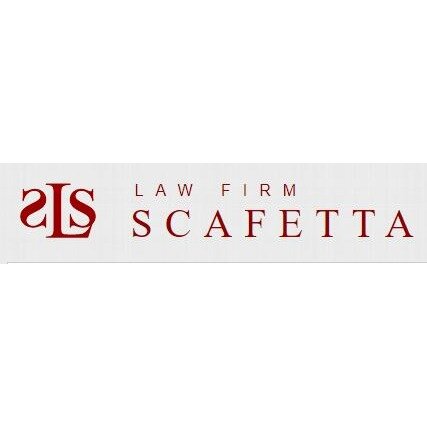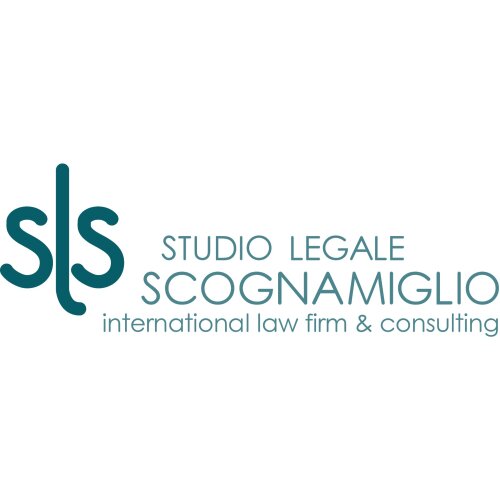Best Acquisition / Leveraged Finance Lawyers in Naples
Share your needs with us, get contacted by law firms.
Free. Takes 2 min.
List of the best lawyers in Naples, Italy
About Acquisition / Leveraged Finance Law in Naples, Italy
Acquisition and Leveraged Finance law in Naples, Italy, navigates the complex legal landscape surrounding corporate acquisitions, mergers, and buyouts where third-party finance, typically borrowed funds, is used to fund all or part of the transaction. Leveraged finance structures often involve significant amounts of borrowed capital, where the acquired company’s assets or cash flows are used as collateral or sources for repayment. In Naples, as with the rest of Italy, these legal transactions are underpinned by local, national, and European regulatory frameworks, requiring specialized legal expertise to manage risks, compliance, and negotiation among all parties involved.
Why You May Need a Lawyer
Legal assistance is crucial in acquisition and leveraged finance deals due to the complexity and risks involved. Common scenarios requiring a lawyer include:
- Conducting due diligence on the target company to uncover potential liabilities or legal issues
- Structuring leveraged buyouts or acquisition financing packages, including negotiating loan agreements and security arrangements
- Ensuring compliance with Italian and EU regulations regarding mergers, anti-competition laws, and financial oversight
- Assisting with cross-border transactions involving international entities, currency exchanges, and multiple legal jurisdictions
- Drafting and reviewing contracts, guarantees, and security documents to protect client interests
- Supporting distressed acquisitions, insolvency-related transactions, and restructuring of debt
Given the high value and complexity of these transactions, engaging a knowledgeable lawyer can help prevent costly mistakes and ensure smooth completion of deals.
Local Laws Overview
In Naples, and throughout Italy, acquisition and leveraged finance transactions are governed by a mixture of civil, corporate, and banking laws. The Italian Civil Code sets out fundamental rules for contracts, guarantees, and property law. The Italian Commercial Code, banking regulations issued by Banca d’Italia, and regulatory requirements set by CONSOB (the Italian Companies and Exchange Commission) also apply.
Key relevant aspects include:
- Strict rules on financial assistance: Italian law has restrictions on target companies providing security or guarantees for the acquisition of their own shares
- Robust anti-money laundering and anti-corruption controls for large financial transactions
- Stringent disclosure, registration, and notification requirements for changes in company control or shareholding structures
- Banking regulations relating to the provision and structuring of loans for acquisitions
- Competition law oversight - acquisitions that could affect market competition may need approval from the Italian Competition Authority (AGCM)
- EU-wide considerations for cross-border deals, especially regarding competition regulations and capital movements
Working with a lawyer well-versed in Neapolitan, Italian, and EU law ensures legal compliance and helps avoid regulatory pitfalls.
Frequently Asked Questions
What is acquisition finance?
Acquisition finance refers to the funding used specifically to acquire another business, whether through purchasing assets or shares. It can involve different instruments such as bank loans, bonds, or mezzanine financing.
How does leveraged finance differ from standard acquisition finance?
Leveraged finance relies more heavily on borrowed funds, often using the assets or future income of the acquired company as collateral for the debt. This increases financial risk and requires careful structuring.
Are there restrictions on borrowing for acquisitions in Italy?
Yes, Italian law restricts certain types of financial assistance, making it unlawful for target companies to help finance their own acquisition under specific circumstances. There are also disclosure and approval requirements for large loans.
What are the common forms of security for acquisition finance in Naples?
Common forms include pledges over shares, mortgages on real property, liens on movable assets, and assignments of receivables. The enforceability and process for creating these securities must comply with Italian law.
Do acquisition finance transactions in Naples require regulatory approval?
Some transactions require approval from authorities such as AGCM if the deal impacts market competition or involves strategic assets. Financial institutions also need to comply with banking regulations.
Can foreign buyers use leveraged finance to acquire companies in Naples?
Yes, foreign buyers can engage in leveraged acquisitions, but they must navigate Italian and EU regulations on foreign investment, capital movements, and anti-money laundering controls.
What is the role of due diligence in acquisition finance?
Due diligence is critical to identify potential legal, financial, and operational risks before acquisition. Lawyers carry out legal due diligence on contracts, obligations, litigation, assets, and regulatory compliance.
How are acquisition loans typically structured in Italy?
Loans are usually structured with a combination of senior, mezzanine, and sometimes subordinated debt, with specific contractual terms on interest, maturity, security, covenants, and repayment schedules.
What happens if the target company faces insolvency after a leveraged buyout?
If insolvency occurs, creditors may enforce securities or initiate restructuring procedures. Italian insolvency law includes provisions for creditor arrangements, restructuring, and possible asset liquidation.
Why is local legal advice important in Naples for these transactions?
Local lawyers understand regional business practices, court procedures, and local regulations, ensuring proper deal structuring and risk management specific to Naples and the greater Campania region.
Additional Resources
You may find the following organizations and bodies helpful:
- Banca d’Italia - Supervises banking operations, including acquisition finance transactions
- CONSOB (Commissione Nazionale per le Società e la Borsa) - Regulates companies and stock exchange activities
- Italian Competition Authority (AGCM) - Monitors and approves transactions that may impact market competition
- Naples Chamber of Commerce - Provides information and resources for businesses operating in the region
- Italian Ministry of Economic Development - Offers guidelines on foreign investments and corporate transactions
- Local Bar Associations - Can refer you to qualified lawyers specializing in acquisition and finance law
Next Steps
If you are considering an acquisition or leveraged finance transaction in Naples, it is important to consult with a legal professional experienced in Italian and European finance law. Here are recommended steps to follow:
- Define your objectives and gather all relevant transaction documentation
- Consult a specialized local lawyer to discuss your plans and potential legal frameworks
- Complete thorough due diligence with legal and financial experts
- Engage your lawyer to draft, negotiate, and review all contractual documents
- Ensure all regulatory filings and approvals are obtained before closing the deal
- Use ongoing legal support for post-acquisition integration and compliance
Taking these steps with the assistance of an experienced acquisition and finance lawyer in Naples will help protect your interests, ensure regulatory compliance, and increase the chances of a successful transaction.
Lawzana helps you find the best lawyers and law firms in Naples through a curated and pre-screened list of qualified legal professionals. Our platform offers rankings and detailed profiles of attorneys and law firms, allowing you to compare based on practice areas, including Acquisition / Leveraged Finance, experience, and client feedback.
Each profile includes a description of the firm's areas of practice, client reviews, team members and partners, year of establishment, spoken languages, office locations, contact information, social media presence, and any published articles or resources. Most firms on our platform speak English and are experienced in both local and international legal matters.
Get a quote from top-rated law firms in Naples, Italy — quickly, securely, and without unnecessary hassle.
Disclaimer:
The information provided on this page is for general informational purposes only and does not constitute legal advice. While we strive to ensure the accuracy and relevance of the content, legal information may change over time, and interpretations of the law can vary. You should always consult with a qualified legal professional for advice specific to your situation.
We disclaim all liability for actions taken or not taken based on the content of this page. If you believe any information is incorrect or outdated, please contact us, and we will review and update it where appropriate.










